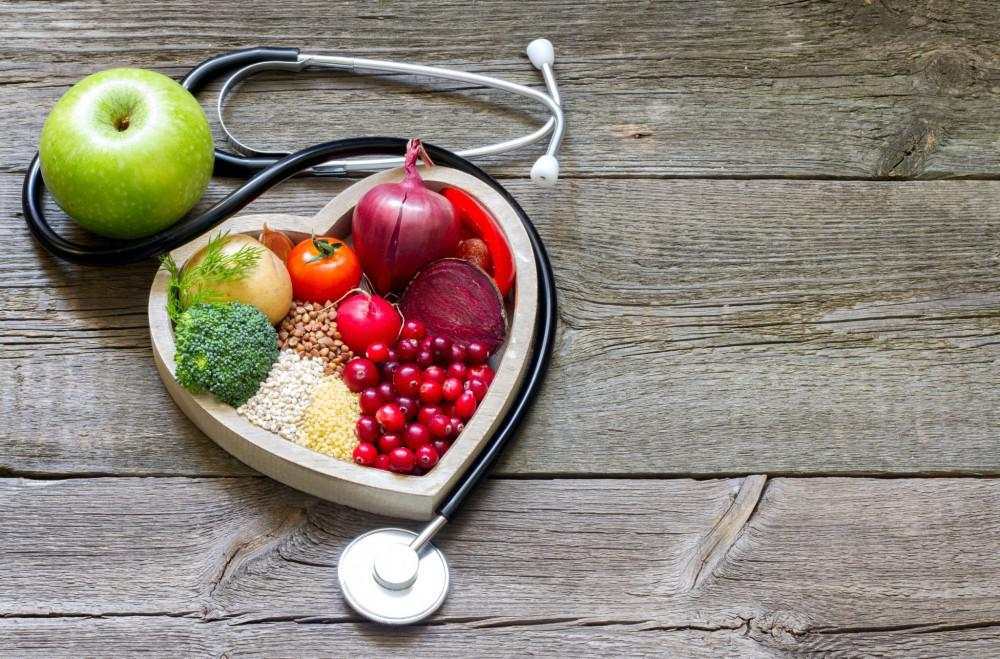
5 Ways To Take Care of Your Heart
 It’s February, which does not only mean Valentine’s Day is coming up: it is officially American Heart Health Month. As we prepare to plan gifts for our loved ones, we must also take care of ourselves and give some TLC (that’s tender love and care) to our heart! It is one of the most important organs in our body and the reason we are able to walk, talk, and go on with our day. According to the American Heart Association, heart disease is the leading cause of death in New Jersey. Here are 5 ways to take care of your heart:
It’s February, which does not only mean Valentine’s Day is coming up: it is officially American Heart Health Month. As we prepare to plan gifts for our loved ones, we must also take care of ourselves and give some TLC (that’s tender love and care) to our heart! It is one of the most important organs in our body and the reason we are able to walk, talk, and go on with our day. According to the American Heart Association, heart disease is the leading cause of death in New Jersey. Here are 5 ways to take care of your heart:
1.) Cholesterol – cholesterol is a waxy, fat-like substance that’s found in all the cells in your body. While it’s not “bad” (your body needs it to build cells), too much can be a problem. Cholesterol comes from two sources. Your body (specifically your liver) makes all of the cholesterol you need, the rest is taken in from animal products. Meat, poultry, and full-fat dairy products contain cholesterol (called dietary cholesterol). More importantly, these foods are high in saturated and trans fat. This can cause your liver to make more cholesterol than it needs. Cholesterol circulates in the blood and as blood cholesterol levels rise, so does the risk to your health. This is why it’s important keep track of your cholesterol levels. To help lower your bad cholesterol, you should to reduce your intake of saturated and trans fat. These are mostly found in red meat and dairy products made with whole milk. As an alternative, try to eat more fish and white meat while cooking with healthy oils such as coconut, avocado or olive oil.
2.) Exercise– Exercising can be as simple as taking a quick walk or jog every morning. Since your heart is a muscle it is important to exercise it and keep it healthy. Cardiovascular exercise strengthens cardiac tissue and enhances circulation. By exercising regularly for 30 minutes or more it can improve your cholesterol levels, help you lose weight, and decrease your blood pressure by as many as five to seven points. It also improves the body’s ability to use oxygen. To determine if you are exercising too much or too little check your pulse at a resting rate before you begin your exercise regime. A normal heart rate ranges from 60 to 100 beats per minute. You can determine your beats per minute by counting your pulse for 30 seconds and multiplying that number by 2.
3.) Nutrition –Eating a colorful diet full of fruits, vegetables, whole grains, fish, low fat dairy products, and poultry is beneficial to your heart. Limiting sugary foods and drinks, salt, and fatty or processed meats is also critical. Foods such as salmon, oatmeal, blueberries, soy, flax seeds, and avocados are helpful to your diet. Blueberries are full of anti-inflammatories, which reduce your risk of heart disease, while salmon is full of omega-3 fatty acids that can effectively reduce blood pressure and bad cholesterol. Having plenty of unprocessed, plant-based foods have a substantial effect on your health. Along with what you eat, how much you consume is just as crucial. Obesity is a major cardiovascular disease risk factor therefore portion control is imperative.
Having plenty of unprocessed, plant-based foods have a substantial effect on your health. Along with what you eat, how much you consume is just as crucial. Obesity is a major cardiovascular disease risk factor therefore portion control is imperative.
4.) Smoking – Smoking damages your circulatory system and increases your risk of multiple diseases. Once you stop smoking, your lungs are able to begin healing themselves. Increased movements can help as physical activity can also help manage your stress. According to a December 2012 American Heart Association study, women who smoke more than double their risk of sudden cardiac death. This is because nicotine can alter heart activity and cigarette smoke scars heart tissue. The study also explains that any amount of smoke you intake, will boost your risk. As soon as you stop smoking, your heart will start rebounding and your chance of heart attack decreases.
5.) Check-in – The best way to make sure your heart in good shape is keeping yourself in check. This includes keeping track of your blood pressure and sugar levels. Poor diet and stress have been tied to high blood pressure, so it’s important to be conscious about our overall wellbeing. Doing this will positively impact our blood pressure numbers. In order to maintain your sugar levels, checking nutrition facts, labels, and ingredients will help you cut out added sugars and limit sweets and sugary beverages. Also avoid heavily processed foods and stick to the simpler ones. Lastly, be sure to move more, because moderate intensity aerobic physical activity helps your body respond to insulin.
Stay heart healthy!
– Shruti S.